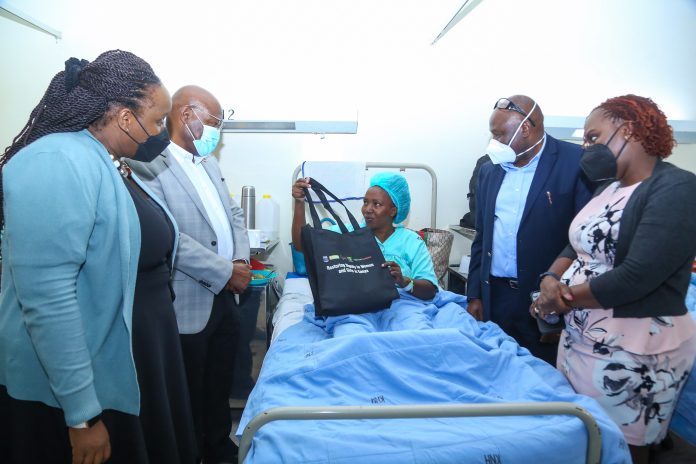Over 60 women living with fistula are expected to benefit from free surgeries and medical advice following a week-long medical camp at Kenyatta National Hospital (KNH).
M-PESA Foundation and Flying Doctors’ Society of Africa partnered to offer the week-long fistula camp at a cost of KES 5,177,150.
The partnership was officially launched last year in Webuye County Hospital and has provided fistula treatment and surgery to over 261 women in Bungoma, Kilifi, Nyeri, Kajiado and Tharaka Nithi counties.
“This partnership has created awareness about fistula in order to stop the stigma faced by women living with the condition. We strongly urge more women to get screened and take advantage of these medical camps to get free surgeries,” said Nicholas Nganga, Chairman M-PESA Foundation.
The medical camps also create awareness of the importance of quality maternal health services and highlight various projects across the counties.
“The Flying Doctors’ Society provides access to outreach medical services. We offer hope, create awareness and reduce the stigma faced by those living with fistula. We are committed to restoring the dignity of women and girls in the country as part of our efforts to contribute to the eradication of fistula in Kenya by 2030,” said Tanya Nduati, CEO of Flying Doctors’ Society of Africa.
Timely access to quality emergency obstetric care and the presence of trained health professionals with midwifery skills during childbirth is the most cost-effective way to reduce maternal mortality and morbidities such as fistula.
According to the World Health Organization, more than two million women live with fistula worldwide.
It is estimated that there are 3,000 new fistula cases in Kenya each year, and only 7.5 percent of them can access medical care.
This means that more than 2,700 women with fistula are unable to get the necessary medical attention every year.













